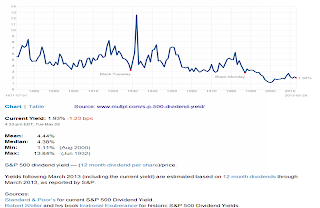The author, Federico Pistono, periodically writes a new chapter and I just signed up for updates.
The introduction caught my eye.
IntroductionPart I is on Automation and Unemployment, and consists of five chapters. Parts II and III are not yet posted. Inquiring minds may wish to follow the journey.
You are about to become obsolete. You think you are special, unique, and that whatever it is that you are doing is impossible to replace. You are wrong. As we speak, millions of algorithms created by computer scientists are frantically running on servers all over the world, with one sole purpose: do whatever humans can do, but better. These algorithms are intelligent computer programs, permeating the substrate of our society. They make financial decisions, they predict the weather, they predict which countries will wage war next. Soon, there will be little left for us to do: machines will take over.
Does that sound like some futuristic fantasy? Perhaps. This argument is proposed by a growing yet still fringe community of thinkers, scientists, and academics, who see the advancement of technology as a disruptive force, which will soon transform our entire socioeconomic system forever. According to them, the displacement of labour by machines and computer intelligence will increase dramatically over the next few decades. Such changes will be so drastic and quick that the market will not be able to abide in creating new opportunities for workers who have lost their jobs, making unemployment not just part of a cycle, but structural in nature and chronically irreversible. It will be the end of work as we know it.
Most economists discard such arguments. Many of them don’t even address the issue in the first place. And those who do address this issue claim that the market always finds a way. As machines replace old jobs, new jobs are created. Thanks to the ingenuity of the human mind and the need for growth, markets always find a way, especially in the ever-connected and globalised mass market we live in today.
In this book I will try to avoid picking either side based on belief, gut feeling, or hunch. Rather, I will attempt to engage in informed logical reasoning, based on the evidence we have so far.
The book is divided into three parts. First, we will explore the topic of technological unemployment and its impact on work and society – I chose to focus on the US economy, but the same argument applies to most the industrialised world. In the second part we will look into the nature of work itself and the relationship between work and happiness. The last part is a bold attempt to provide some practical suggestions on how to deal with the issues presented in the first two parts. Doing a thorough examination of each section would require a monumental effort, possibly resulting in thousands of pages, far exceeding the purpose of this book. My intention is not to write a complete academic report, but rather to initiate a discussion about what I think will soon be one of the biggest challenges that we have to face as a society and as individuals. Too often we treat various issues as separate subjects, not realising the interconnected nature of our reality. This mistake has made us weak and vulnerable. Over the last 70 years, we have set the stage of our own demise. We have become increasingly discontent, the quality of our relationships have diminished, and we have lost track of what really matters. Today, as the comedian Louis CK has noted: “Everything is amazing, and nobody is happy!” It is time to take a step back and think about where we are going.
Let us begin the journey. ...
What If?
In the following short 4-minute video Federico Pistono asks "What if the jobs cannot come back? What if it is intrinsically impossible for the jobs to come back? What if unemployment is structural?"
Here is a 17 minute video that is also worth a look. Pistono argues "no one is safe" while asking "what happens if Walmart fully automates?"
Here is my favorite snip from the video: "As much as 80% of the people hate their job. That's four out of five spending most of their useful life doing something they don't particularly enjoy. We are in kind of a work paradox because we work long and hard hours, on jobs we hate, to buy things we don't need, to impress people we don't like. Genius!"
Structurally High Unemployment
For several years I have been writing about the concept of "Structurally High Unemployment" but Pistono goes far beyond that. He explores the idea this is not just another creative destruction phase that will be followed by another job boom, but rather this is the end, computer intelligence is why, and that's a great thing!
Pistono's socialistic vision of the future is that robots will do everything, there are infinite resources, no one has to work, and we all live happily ever after.
To say I disagree about that Pollyanna endgame is putting things mildly. And since I believe there is no work-free nirvana, here's the key question: what if Pistono is half-right, that no job is safe, that no jobs are coming, but robots do not provide the "But that's OK" nirvana Pistono imagines.
Mike "Mish" Shedlock
http://globaleconomicanalysis.blogspot.com
























